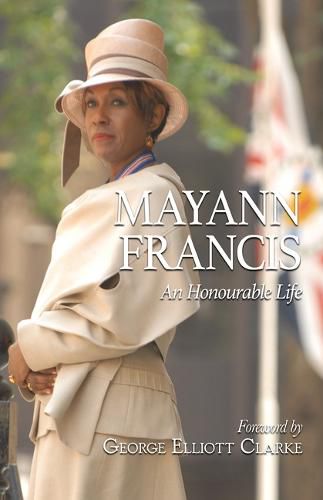Readings Newsletter
Become a Readings Member to make your shopping experience even easier.
Sign in or sign up for free!
You’re not far away from qualifying for FREE standard shipping within Australia
You’ve qualified for FREE standard shipping within Australia
The cart is loading…






When Mayann Francis was named Nova Scotia’s first Black lieutenant-governor, she wondered if the community would accept her. Francis was born just three months after businesswoman Viola Desmond was arrested for sitting in a whites-only section of a movie theatre in New Glasgow. Had enough changed? In this candid memoir, Francis describes her journey from humble beginnings in Whitney Pier, the daughter of immigrants, to the vice-regal office. She explains how her religious faith and her family’s belief in education equipped her for life’s challenges, including the loss of much of her vision.
Before Francis was named lieutenant-governor, she had earned a masters degree in New York City and worked in a series of senior positions. But her time in the vice-regal office was not without challenges. Francis was unable to live in Government House for much of her term because the official residence was being renovated. As the renovations dragged on, there were rumours, she writes, that some politicians and bureaucrats did not want her to ever move in. Was it, she asks, because she was Black? Francis poses tough questions in this book, but also offers advice and encouragement to anyone faced with challenges.
$9.00 standard shipping within Australia
FREE standard shipping within Australia for orders over $100.00
Express & International shipping calculated at checkout
When Mayann Francis was named Nova Scotia’s first Black lieutenant-governor, she wondered if the community would accept her. Francis was born just three months after businesswoman Viola Desmond was arrested for sitting in a whites-only section of a movie theatre in New Glasgow. Had enough changed? In this candid memoir, Francis describes her journey from humble beginnings in Whitney Pier, the daughter of immigrants, to the vice-regal office. She explains how her religious faith and her family’s belief in education equipped her for life’s challenges, including the loss of much of her vision.
Before Francis was named lieutenant-governor, she had earned a masters degree in New York City and worked in a series of senior positions. But her time in the vice-regal office was not without challenges. Francis was unable to live in Government House for much of her term because the official residence was being renovated. As the renovations dragged on, there were rumours, she writes, that some politicians and bureaucrats did not want her to ever move in. Was it, she asks, because she was Black? Francis poses tough questions in this book, but also offers advice and encouragement to anyone faced with challenges.